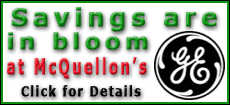|
 The announcement came after North Korea handed over a long-awaited accounting of its nuclear work to Chinese officials on Thursday, fulfilling a key step in the denuclearization process. Bush said the move was "a step closer in the right direction" although he made clear the United States remains suspicious about the communist regime in Pyongyang. The announcement came after North Korea handed over a long-awaited accounting of its nuclear work to Chinese officials on Thursday, fulfilling a key step in the denuclearization process. Bush said the move was "a step closer in the right direction" although he made clear the United States remains suspicious about the communist regime in Pyongyang.
"The United States has no illusions about the regime," Bush said in a statement that he read to reporters in the Rose Garden.
Specifically, Bush said the U.S. would erase trade sanctions under the Trading With the Enemy Act, and notify Congress that, in 45 days, it intends to take North Korea off the State Department list of nations that sponsor terrorism.

North Korea's declaration falls short of what the administration once sought, and the White House already has come under criticism from some conservatives. Bush said there was still a long way to go.
Bush said the U.S. message to North Korea was, "We will trust you only to the extent you fulfill your promises. I'm pleased with the progress. I'm under no illusions. This is the first step. This isn't the end of the process. It is the beginning of the process."
"If North Korea continues to make the right choices it can repair its relationship with the international community ... If North Korea makes the wrong choices, the United States and its partners in the Six-Party Talks will act accordingly."
While welcoming North Korea's declaration, Bush repeatedly said it was just a first step.
The president said the U.S. action would have little impact on North Korea's financial and diplomatic isolation. "It will remain one of the most heavily sanctioned nations in the world," Bush said. All U.N. sanctions, for example, will remain in place.

Bush said the United States would monitor North Korea closely and "if they don't fulfill their promises, more restrictions will be placed on them."
He formally notified Congress of his intention to remove North Korea from the terrorism blacklist within 45 days, and said the United States will monitor the North's activities during that period to make sure it is living up to its promises and is serious about cooperating in the process of denuclearization.
Bush said that to end its isolation, North Korea must, for instance, dismantle all of its nuclear facilities and resolve outstanding questions on its highly enriched uranium and proliferation activities "and end these activities in a way that we can fully verify."
Bush thanked all members of the six-party talks, but singled out Japan. Tokyo has argued that the U.S. decision to remove North Korea from the list of terrorist nations should be linked to progress in solving North Korea's abduction of Japanese nationals in the 1970s and 1980s.
"The United States will never forget the abduction of Japanese citizens by the North Koreans," said Bush who called Japanese Prime Minister Yasuo Fukuda on Wednesday to express U.S. concern about the issue. "We will continue to closely cooperate and coordinate with Japan and press North Korea to swiftly resolve the abduction issue."

Besides providing information about its nuclear facilities, North Korea's declaration is to provide a verifiable figure on how much plutonium they have. That still won't answer the question of how many bombs North Korea has stockpiled, but plutonium is the "heart of the game because that is the stuff they make bombs out of," says Christopher Hill, the lead U.S. negotiator in the talks under way between Pyongyang and the U.S., China, Japan, South Korea and Russia.
What's not in the declaration is as important as what it includes.
[to top of second column] |
 It won't illuminate North Korea's suspected program of developing weapons fueled by enriched uranium. As a result of the six-nation nuclear talks, the North has stopped making plutonium and begun disabling its nuclear facilities, but it still has a stockpile of radioactive material that experts believe is enough to build from six to 10 bombs.
The North proved it could build a working nuclear bomb when it carried out an underground nuclear test blast in October 2006. Details on the bombs, however, will be left to the next stage of the talks, when Pyongyang is supposed to abandon all its nuclear weapons program.
North Korea's declaration also won't give a complete accounting of how it allegedly helped Syria build what senior U.S. intelligence officials say was a secret nuclear reactor meant to make plutonium, which can be used to make high-yield nuclear weapons. Israeli jets bombed the structure in the remote eastern desert of Syria in September 2007.

The North is expected in the declaration to say how much plutonium it has produced at its main reactor facility at Yongbyon.
"If we can verifiably determine the amount of plutonium that has been made, we then have an upper hand in understanding what may have happened in terms of weaponization," Rice said earlier Thursday in Japan.
If the declaration can be verified, it also would clear the way for the highest diplomatic engagement the Bush administration has had with North Korea. But the U.S. remains wary of North Korea because of its history of broken promises.
Rice has said the U.S. won't take the word of the North Koreans based on what they put on a piece of paper. She says there would be no hedging on the onsite verification of North Korea's weapons and technology
-- that inspectors must be free to verify what North Korea discloses.
"Any effort to denuclearize the Korean peninsula must contend with the fact that North Korea is the most secretive and opaque regime on the planet," she wrote in an opinion piece published in Thursday's Wall Street Journal. "We will not accept that statement on faith. We will insist on verification."

To demonstrate that it is serious about foregoing its nuclear weapons, North Korea is planning the televised destruction of a 65-foot-tall cooling tower at its main nuclear reactor at Yongbyon. The cooling tower is a key element of the reactor, but blowing it up
-- with the world watching -- has little practical meaning because the reactor has already been nearly disabled.
Exempting North Korea from the enemy trade law, which also limits trade with Cuba, will have minimal impact as major U.S. companies aren't lining up to do large amounts of business in North Korea.
North Korea was put on the list of nations that sponsor terrorism for its alleged involvement in the 1987 bombing of a South Korean airliner that killed 115 people. The designation effectively blocks North Korea from receiving low-interest loans from the World Bank and other international lending agencies.
[Associated
Press; By DEB RIECHMANN]
Copyright 2008 The Associated
Press. All rights reserved. This material may not be published,
broadcast, rewritten or redistributed.
 |